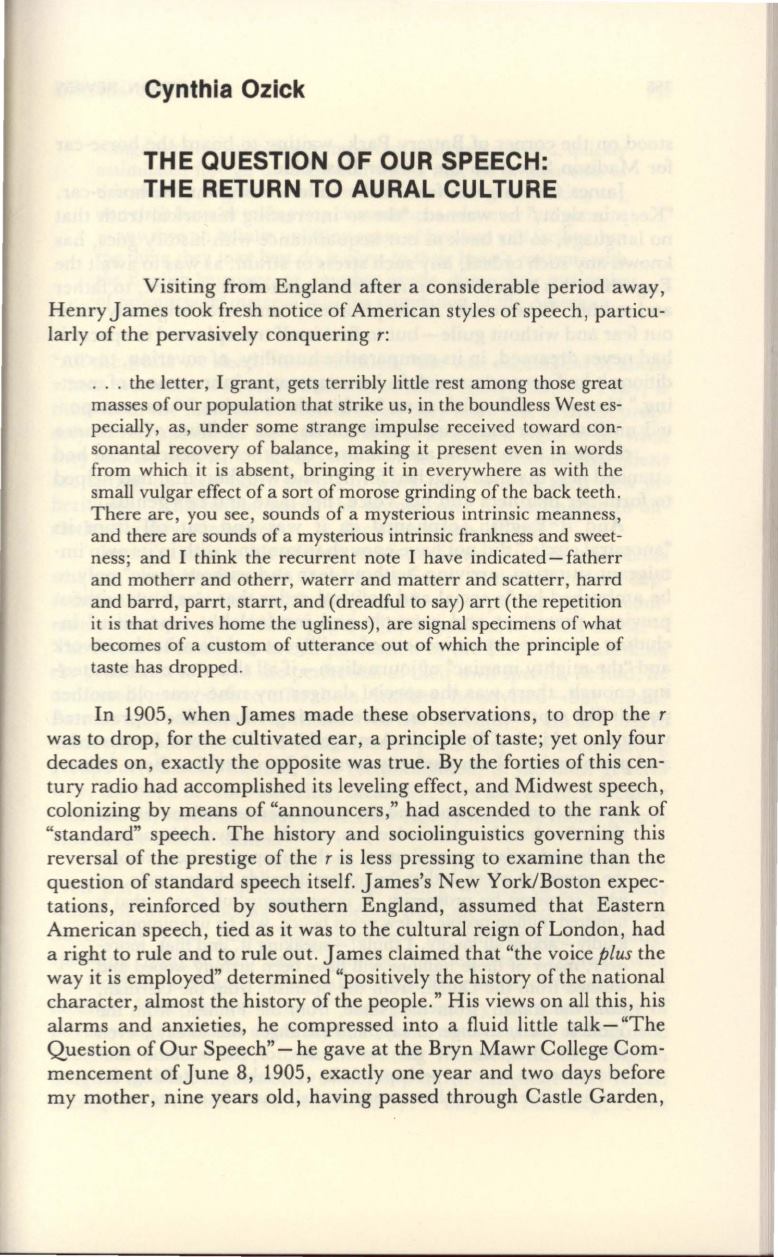
Cynthia Ozick
THE QUESTION OF OUR SPEECH:
THE RETURN TO AURAL CULTURE
Visiting from England after a considerable period away,
Henry James took fresh notice of American styles of speech, particu–
larly of the pervasively conquering
r:
.. . the letter, I grant, gets terribly little rest among those great
masses of our population that strike us, in the boundless West es–
pecially, as, under some strange impulse received toward con–
sonantal recovery of balance, making it present even in words
from which it is absent, bringing it in everywhere as with the
small vulgar effect of a sort of morose grinding of the back teeth.
There are, you see, sounds of a mysterious intrinsic meanness,
and there are sounds of a mysterious intrinsic frankness and sweet–
ness; and I think the recurrent note I have indicated- fatherr
and motherr and otherr, waterr and matterr and scatterr, harrd
and barrd, parrt, starrt, and (dreadful to say) arrt (the repetition
it is that drives home the ugliness), are signal specimens of what
becomes of a custom of utterance out of which the principle of
taste has dropped.
In 1905, when James made these observations, to drop the
r
was to drop, for the cultivated ear, a principle of taste; yet only four
decades on, exactly the opposite was true. By the forties of this cen–
tury radio had accomplished its leveling effect, and Midwest speech,
colonizing by means of "announcers," had ascended to the rank of
"standard" speech. The history and sociolinguistics governing this
reversal of the prestige of the
r
is less pressing to examine than the
question of standard speech itself. James's New York/Boston expec–
tations, reinforced by southern England, assumed that Eastern
American speech, tied as it was to the cultural reign of London, had
a right to rule and to rule out. James claimed that "the voice
plus
the
way it is employed" determined "positively the history of the national
character, almost the history of the people." His views on all this, his
alarms and anxieties, he compressed into a fluid little talk- "The
Question of Our Speech"- he gave at the Bryn Mawr College Com–
mencement of June 8, 1905, exactly one year and two days before
my mother, nine years old, having passed through Castle Garden,


